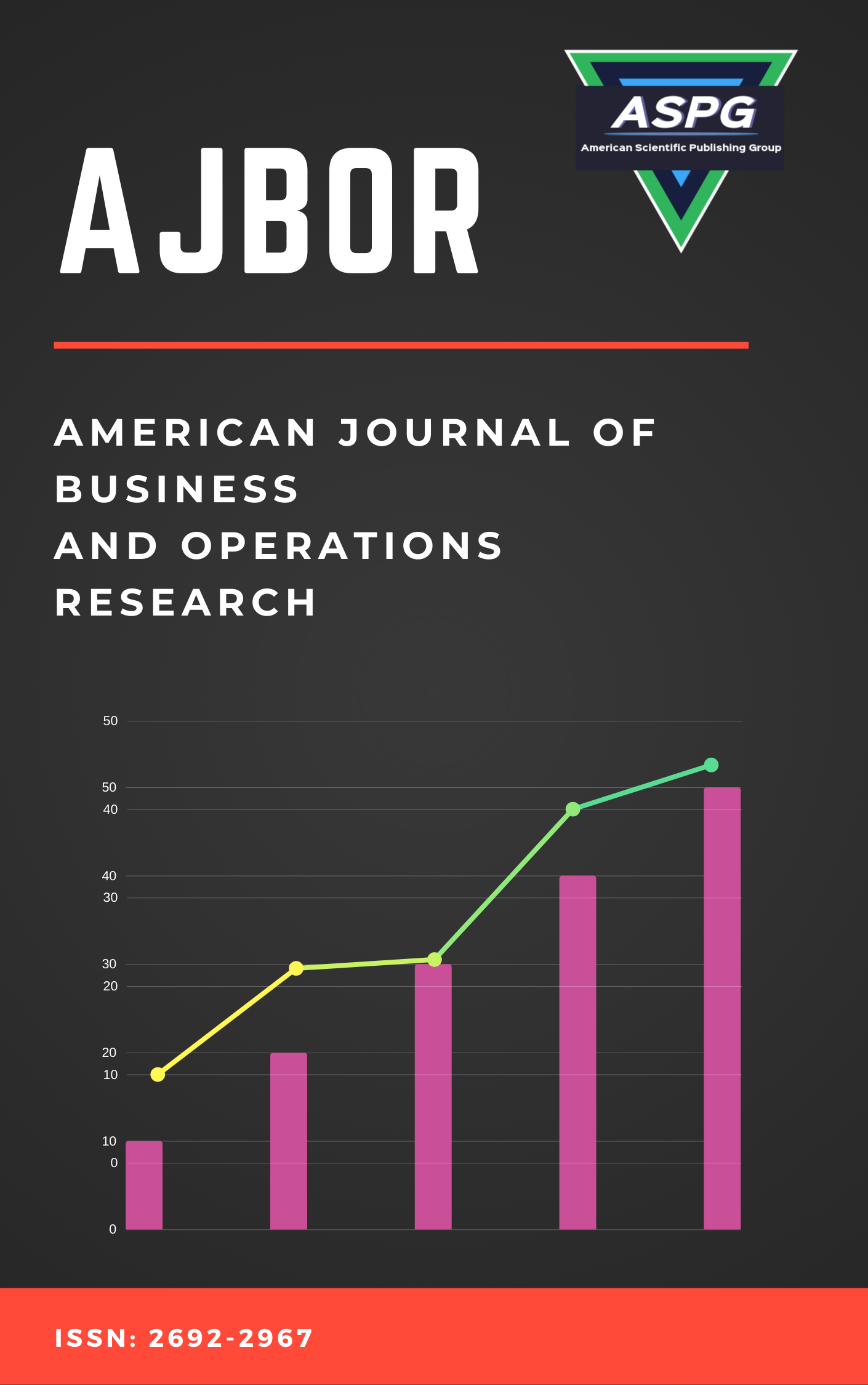

Volume 4 , Issue 1 , PP: 08-22, 2021 | Cite this article as | XML | Html | PDF | Full Length Article
Vitalina Babenko 1 * , Maryna Nehrey 2 , Berislava Staresinic 3 , Shoujin Wang 4
Doi: https://doi.org/10.54216/AJBOR.040101
In recent years, the sharing economy has risen rapidly, infiltrating into many fields such as travel, accommodation, medical care, and finance, and has injected new development momentum into these industries. In the shared economy, the sharing of resources not only promotes the flow of social wealth, but also enables idle items to continue to use value and improve resource utilization. The rapid development of the sharing economy brings many benefits, but at the same time, some traditional business models are dying. In China, there is no relevant policy to integrate the economic business model into the scope of tax collection and management. This phenomenon has caused China's tax source. Loss. In response to this problem, this paper studies the taxation of the shared economic business model. Using big data analysis technology as a basic tool, through the analysis of domestic shared economic data, the research on the shared economic business model was completed. Based on the analysis of the status quo of the taxation system of the shared economic business model, the suggestions for perfecting the taxation system of the shared economic business model in China are given, so that the tax collection and management system such as the tax collection concept and the collection and management system can be better adapted. Sharing new requirements for economic development.
shared economy , tax collection and management , perfect taxation system
[1] Qin Haitao. Discussion on the Sharing Economic Business Model and Suggestions for Further Development in China[J]. Journal of Business Economics, 2016(24): 124-126.
[2] Zhao Cuiling, Zhou Xia. Challenges and Countermeasures for Taxation of Shared Economy[J]. Times Economic and Trade, 2018, No.445(20):90-91.
[3] Jeremy Rifkin. Going to the Internet of Things and Sharing Economy [J]. Enterprise Research. 2015, (2): 14-21.
[4] Belk, R. Sharing[J]. Journal of Consumer Research.2015,36(5):715-734.
[5] Finley, K. Trust in the Sharing Economy: An Exploratory Study[J]. Global Media and Communication.2016,23(2):36-42.
[6] Li Bo, Wang Jinlan. Research on Taxation Issues of Shared Economic Business Model[J].Research on Modern Economy.2016,(5):29-33.
[7] Li Yanbing.Research on Tax Issues of Shared Economy——Taking UBER as an Example[J].Legal and Social.2016,(30):97-98.
[8] Yang Jinliang, Chen Yizhong, Kong Weibin. The Impact of Sharing Economy on Taxation and Tax Response[J]. Tax Research, 2017(05): 48-52.
[9] Chen Si, Liu Mengxi, Liu Yuhuan. Analysis of the Shared Economy Model[J]. Modern Business, 2017(4): 66-67.
[10] Zheng Zhilai. Research on the Causes, Connotations and Business Models of the Sharing Economy[J]. Modern Economic Research, 2016, No.411(3): 32-36.
[11] Ren Juanmei, Bi Fuli. Discussion on Enterprise Talent Management under the Background of Sharing Economy[J]. Modernization of Shopping Mall, 2018(6).
[12] Liu Zihao. Reflections on the Causes, Connotations and Business Models of Sharing Economy[J]. Modern State Enterprise Research, 2017(20): 156-156.
[13] Li Haiting. Discussion on Sharing Economy[J]. Modern Economic Information, 2017(19):327-327.
[14] Jiang Guangyu. Discussion on the Development Direction of Enterprises under the Wave of Sharing Economy——A Case Study of Drips[J]. Modern Business, 2017(3): 123-124.
[15] China Internet Society Sharing Economic Work Committee White Paper Organizing Committee. Analysis of Economic Development in the Field of Transportation Travel[J]. Internet World, 2016(7): 70-73.
[16] Anonymous. Talking about China's Shared Economy——Taking Life Service Industry as an Example[J]. National Circulation Economy, 2018, 2192(32):90-91.
[17] Wu Hantao. The Evolution of Information Consumption Behavior in the Big Data Era[J]. Economic Research Guide, 2018, No.363(13): 135-139+155.
[18] Anonymous. Analysis of Key Technologies of Big Data Mining Based on Internet[J]. Information Recording Materials, 2018(10): 95-96.
[19] Liu Haiying. Research on “Big Data + Blockchain” Sharing Economic Development——Based on Industrial Convergence Theory[J]. Technology Economics and Management Research, 2018(1): 91-95.
[20] Lu Xianxiang. Shared Economy: Minimization of Transaction Costs, System Reform and System Supply [J]. Social Science Front, 2016(09): 58-68.
[21] Xiao Jian. Operation Pricing and Market Supervision of Shared Bicycles[J]. Development and Reform Theory and Practice, 2017(10):10-19+42.
[22] Li Yi'an. Analysis of Big Data Application and Negative Effects of Internet Enterprises——Taking Didi Chuxing and Facebook as an Example[J]. Science and Technology Economics Guide, 2018, 26(29): 22-23.
[23] Liu Qingzhen. New Changes in Sharing Economy, Business Thinking and Resource Allocation[J]. New Industrial Economy, 2017(2):81-83.
[24] Su Junhua, Wu Danjie. Research on the Influencing Factors of Shared Economic Business Model Based on Mobile Internet Platform[J]. Journal of Business Economics, 2018(7): 52-54.
[25] Luo Wei. Exploring the General Tax Level of Shared Economic Business Model——An Empirical Study Based on Laffer Curve[J]. Manager, 2017(20): 14-16.